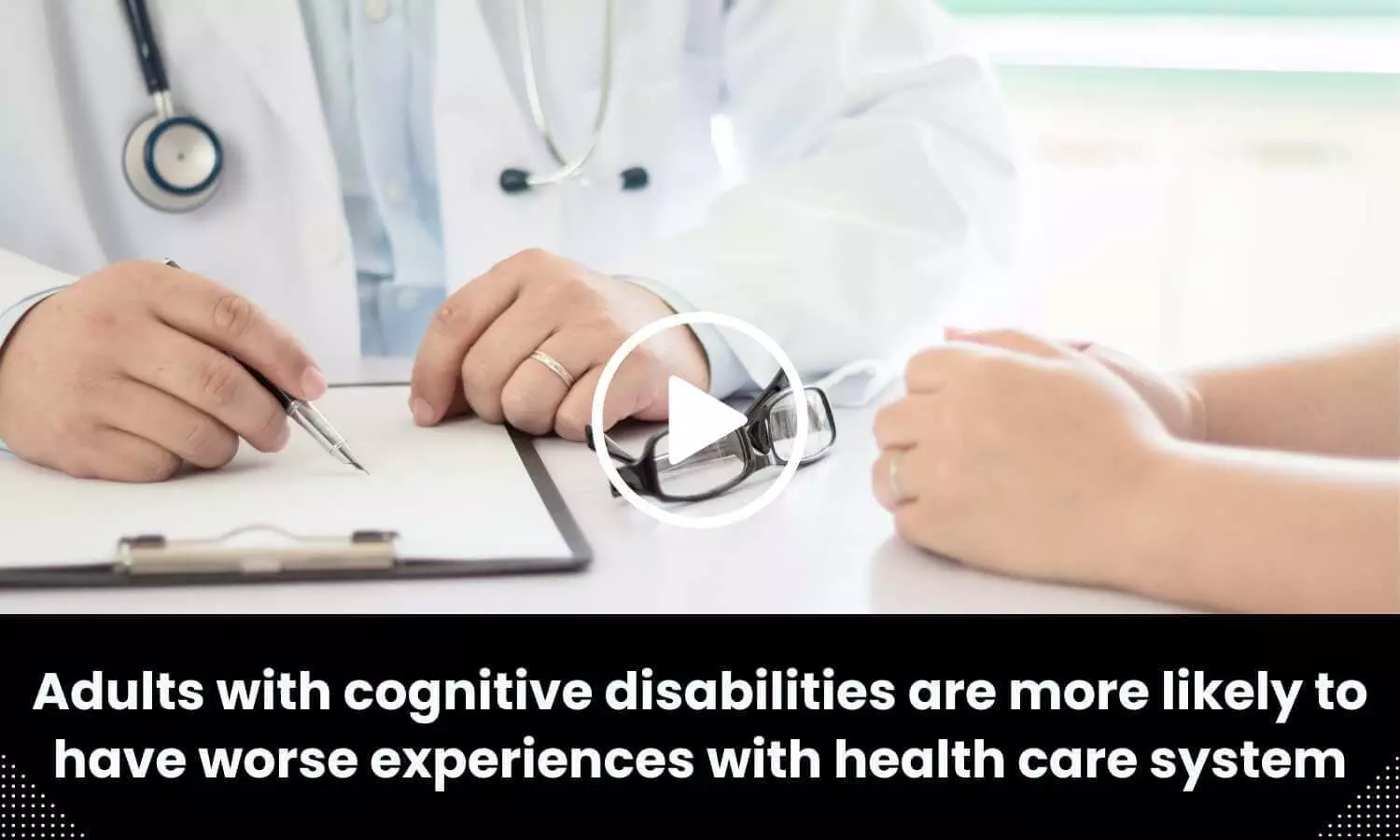- Home
- Medical news & Guidelines
- Anesthesiology
- Cardiology and CTVS
- Critical Care
- Dentistry
- Dermatology
- Diabetes and Endocrinology
- ENT
- Gastroenterology
- Medicine
- Nephrology
- Neurology
- Obstretics-Gynaecology
- Oncology
- Ophthalmology
- Orthopaedics
- Pediatrics-Neonatology
- Psychiatry
- Pulmonology
- Radiology
- Surgery
- Urology
- Laboratory Medicine
- Diet
- Nursing
- Paramedical
- Physiotherapy
- Health news
- AYUSH
- State News
- Andaman and Nicobar Islands
- Andhra Pradesh
- Arunachal Pradesh
- Assam
- Bihar
- Chandigarh
- Chattisgarh
- Dadra and Nagar Haveli
- Daman and Diu
- Delhi
- Goa
- Gujarat
- Haryana
- Himachal Pradesh
- Jammu & Kashmir
- Jharkhand
- Karnataka
- Kerala
- Ladakh
- Lakshadweep
- Madhya Pradesh
- Maharashtra
- Manipur
- Meghalaya
- Mizoram
- Nagaland
- Odisha
- Puducherry
- Punjab
- Rajasthan
- Sikkim
- Tamil Nadu
- Telangana
- Tripura
- Uttar Pradesh
- Uttrakhand
- West Bengal
- Medical Education
- Industry
Adults with cognitive disabilities might have worse experiences with health care system
Overview
People with cognitive disabilities-like autism, attention deficit and memory loss-are less satisfied with their health care than those in the general population, according to a study published by a Rutgers researcher.
The study, published in Disability and Health Journal, examined how a national sample of adults experience the care they receive and the factors that contribute to their experiences.
“People with cognitive disabilities were less likely than people without cognitive disabilities to report that providers listened carefully to them, explained things or gave advice in a way that was easy to understand, spent enough time with them, or showed respect for what they had to say,” said Elizabeth Stone, a faculty member of the Rutgers Center for Health Services Research at the Institute for Health, Health Care Policy and Aging Research and the lead author of the study.
Using a national sample of more than 22,000 adults, including those with and without cognitive disabilities, researchers analyzed patient-reported experiences with health care services and compared the levels of satisfaction of experiences between those with and without disabilities.
Researchers found that individuals with cognitive disabilities rated their overall satisfaction with health care services as significantly lower than those in the general population. Those with cognitive disabilities also reported worse experiences in health care encounters.
Reference: Adults with cognitive disabilities are more likely to have worse experiences with health care system; Disability and Health Journal, DOI: 10.1016/j.dhjo.2023.101547





